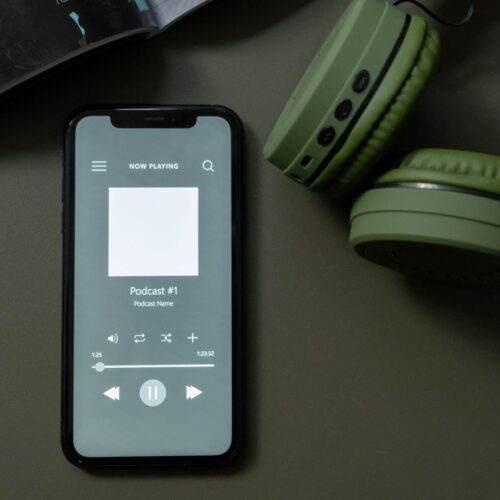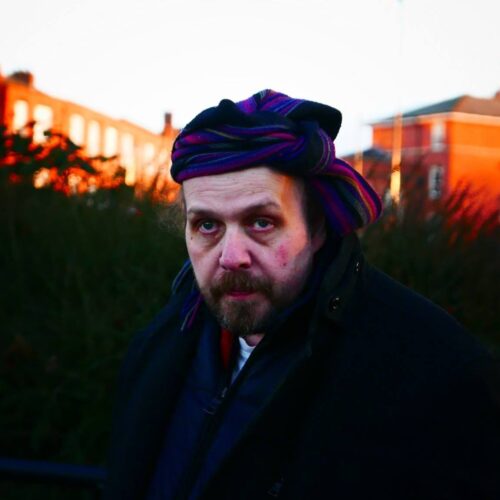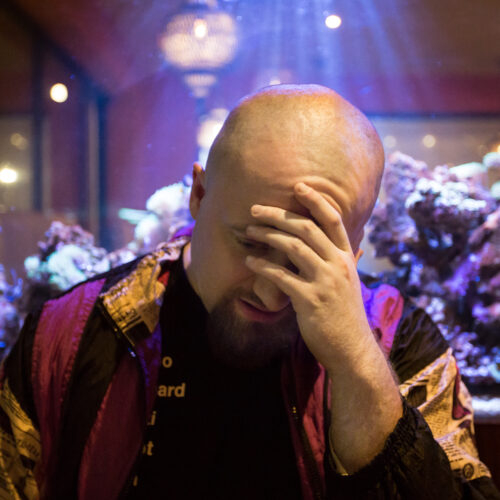
8 Ways to Broaden Your Musical Horizons
This is a post from the weareoca.com archive. Information contained within it may now be out of date.
It’s probably far enough into the New Year now for some of our good intentions and resolutions to have fallen by the wayside. It is exactly at this point, then, that we should remember that we can take steps to broaden our musical horizons at any point, and not just at the start of a new year.

Life as a musician demands focus and dedication; that’s something that anyone who has studied an instrument or composition can attest to. Even concentrated listening takes a considerable amount of effort and dedication. It is easy to forget, however, while we strive to develop our skills in a particular area, that engagement with a broad range of musical and wider cultural activities can be a valuable part of becoming an expert in a specialist field. New experiences can provide challenges, inspiration, and a valuable learning opportunity, even if they demonstrate how not to do something!
While some may be obvious, here are a few ideas of things to try this year. Please feel free to use the comments section to let us know how you got on!
1. Experience your own specialism from another perspective
How you do this depends on your particular specialism, but it is extremely important to experience your own field of work in a way that might give a different approach. For example, if you are an instrumentalist, go and hear someone playing your own instrument live, or try composing a piece for your instrument. It always surprises me how many of my flute students turn up at university not knowing the names of well-known flute players. If you are a composer, go to a contemporary music concert, ideally full of composers you have never heard of. In both cases, try to get a sense of how an audience might experience your own work.
2. Start a new instrument or begin composing
I recently started playing the cello. I’m not very good at it, but I love it. I can’t stress enough how valuable it is to my overall musical health. Being a beginner again is a fantastic experience, from the frustrations of not being able to make something sound the way I want it to, to the small but significant achievements as I go along. I don’t have enough practice time to be able to become a cello virtuoso, but learning to control tone with a bow instead of an airstream and trying to achieve accurate intonation are massively enjoyable challenges. For composers, having a practical knowledge of how a range of instruments work is a huge benefit (Hindemith is one example of someone who learned to play every instrument he composed for), and for instrumentalists, learning a different instrument can give you a new way of looking at your own principal study.
3. Go to a concert
This is probably the most obvious one on the list, but it is remarkably easy to get lazy. The internet has such a wealth of listening potential that we sometimes forget that most music is best heard live. Besides which, at a time when arts funding is increasingly limited, if we music lovers don’t attend concerts, how can we expect to get audiences and support for our own exploits?
4. See how its done in another art form
Different fields present their work in different ways, and experiencing this can give us inspiration. Consider how different art forms reach their audiences (and who their typical audiences are) and how they might be applied to our own practice.
5. Join Twitter
Social Networking sites such as Twitter are a fantastic way to interact with other artists and gain knowledge of what’s out there. Becoming part of the overall musical community can give access to a wide range of material that you’d probably miss otherwise. Sometimes an unknown composer’s link to their Soundcloud page or a writer’s link to their blog page can reveal some hidden gems, along with the chance to converse with the creators. Besides which, it’s a fantastic way to gain exposure for your own work.
6. Work with other artists
I’m all for collaboration, with artists of all disciplines. Whether it’s co-creating an artwork or just playing duets, music is for sharing. If you’ve never done it before, try a small scale project to test the water. If you’re an experienced collaborator, think big and try to make a major project happen. Find the right people to work with and the sky’s the limit!
7. Do some background research
Perhaps this one is the academic in me coming out, but another area for concern with some of my university students is how little they try to develop background knowledge on the music they are playing or listening to. Curiosity is vital for anyone who wants to create something new. Think about what the gaps are in your musical general knowledge and fill them with some targeted reading. Research the composers and repertoire you encounter. For composers, explore different aspects of contemporary composition and the people who are writing in different styles. Again, it seems obvious, but it’s easy just to take music on the surface level and not to dig a little deeper.
8. Take a (calculated) risk
This is perhaps the biggest one of all. At some point, before the end of 2013, do something which takes you out of your musical comfort zone, but do it in the right (safe) environment, where you can pick yourself up and have another go if things don’t go to plan! My big challenges this year include submitting a PhD and learning how to play microtones on the baroque flute d’amour. 2 years ago I released a CD of improvised music, and last year I started a publishing company. These are all things I never imagined I’d do, and each has presented a significant but worthwhile challenge. Each thing leads to more new directions to explore, and more challenges to meet head on. Whether your risk taking involves taking a tiny step in a new direction or an enormous leap of faith, do it when it feels right, and enjoy exploring new territory.






I really enjoyed reading this. It seems to have so many parallels in photography – and I suspect other arts as well. The only one I struggle to find a read-across for is “start composing” but you’ve helpfully paired it with starting a new instrument.
I am tempted to develop a photo equivalent on my blog. In the meantime can I suggest an addition? Take part in a sing along type event. I took part in a performance of Rutters Requiem a couple of years back – turn up in the morning, practise all day, perform in the evening. It was a brilliant experience.
I also really enjoyed reading this, and now feel quite inspired again! Thank you, Carla. I will be taking up your suggestions as they are all excellent. Concert this Saturday night, poetry reading on Monday night!
I have been aware for a long time on how other art forms influence and inspire. David Hockney’s exhibition last year moved me to tears, and watching shape forms on the beach in Norfolk and seeing how artists interpret this had me jotting down ideas for a song cycle. It all interconnects, and we cannot ignore this.
I agree with what’s been said about Carla’s post – these methods to stimulate creativity apply across all the arts. Nigel’s comment reminded me of something I read about Hemingway – that he was forced to learn how to play the Cello by his musical mother, and whilst the medium didn’t ultimately appeal to him, the lessons it taught him flowed into his writing:
“In the first paragraphs of ‘Farewell’, I used the word ‘and’ consciously over and over the way Mr. Johann Sebastian Bach used a note in music when he was emitting counterpoint.” (from Hemingway and Women, Broer & Holland)
I agree that playing and listen are the easy bits, finding new ways to get involved takes effort. Over a year ago I started volunteering at my local concert hall. I get to hear all sorts of things now: kids shows, full orchestras, opera, modern bands etc. I get to help the local community too.
I’ve also taken on the task of setting up a wind band at work, we have our first rehearsal in a few weeks……. We’ll see how it goes!